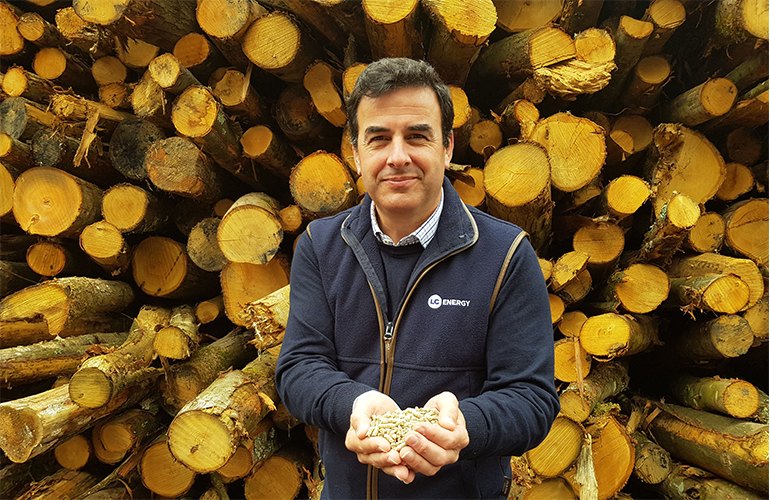Bioenergy industry leaders are urging the UK Government to keep wood fuel supply chains fully open to ensure that suppliers can continue delivering to home heating customers and key frontline organisations and businesses already under immense pressure due to the Coronavirus outbreak.“Our suppliers are pulling out all the stops to ensure that wood fuel deliveries get there on time, said Mark Lebus, Chair of the UK Pellet Council (UKPC).

With hundreds of hospitals, health, and social care facilities, supermarkets and many large-scale food producers already working to maximum capacity and relying solely on biomass wood fuel for heating and hot water, the industry is asking ministers for full reassurance that UK production, wood pellet imports, and transportation of biomass fuel all remain open.
Biomass is an essential utility resource, especially for rural areas, and the wood fuel supply chain – wood pellets and woodchips – requires UK production and imported pellets in equal measure.
Biomass Heat Works! – the joint UK Pellet Council (UKPC) and Wood Heat Association (WHA) initiative – is therefore urgently asking the Department for Transport (DfT), the Department for International Trade (DIT) and the Department for Business, Energy and Industrial Strategy (BEIS), to work closely with them and ensure crucial fuel supplies are maintained.
These are unprecedented times and nobody could have foreseen the impact which this outbreak is having, and unfortunately will continue to have, in the short-term. It is therefore essential that key frontline organisations like the NHS and healthcare providers, other essential businesses like supermarkets, food producers and manufacturers supplying much-needed items, and key workers, can 100% rely on our industry to provide critical biomass heating in a time of crisis, explained Mark Lebus, Chair of the UK Pellet Council.
The Department for Environment, Food, Agriculture and Rural Affairs (DEFRA) also has a crucial role in ensuring wood fibre supply chains remain open for UK biomass production and the jobs they support across the economy.
This is especially prevalent for rural and farming areas given that many large-scale agricultural food producers, now critical to the UK’s food supply chain, specify biomass wood fuel for their heating requirements. For example, one of the UK’s largest poultry producers uses approximately 20 000 tonnes of wood pellets per annum across sites nationally.
Similarly, one of the country’s leading supermarket chains, now at the forefront of supply chain efforts, heats almost 100 of its sites using biomass wood pellets. This equates to circa 30 000 tonnes per annum with deliveries to each store every 2-3 weeks.
Annual wood pellet usage in the UK equates to approximately 700 000 tonnes, but this demand is expected to rise given many people are now also working from home. Biomass Heat Works! representatives, whilst fully supportive of the Government’s current emergency and contingency plans, are now looking for a collaborative approach from ministers to enable the industry to support the national effort.
Our suppliers are pulling out all the stops to ensure that wood fuel deliveries get there on time. However, with imported pellets coming into most ports in the UK on almost a weekly basis, we’re asking Government to include us in their planning as they would do for traditional fossil fuels, and ensure the free movement into and around the UK. Suppliers have already implemented strict social distancing policies to ensure no contact is maintained when delivering, and therefore we must keep frontline organisations, as well as homes and businesses located in rural areas, heated and operational, said Mark Lebus.


